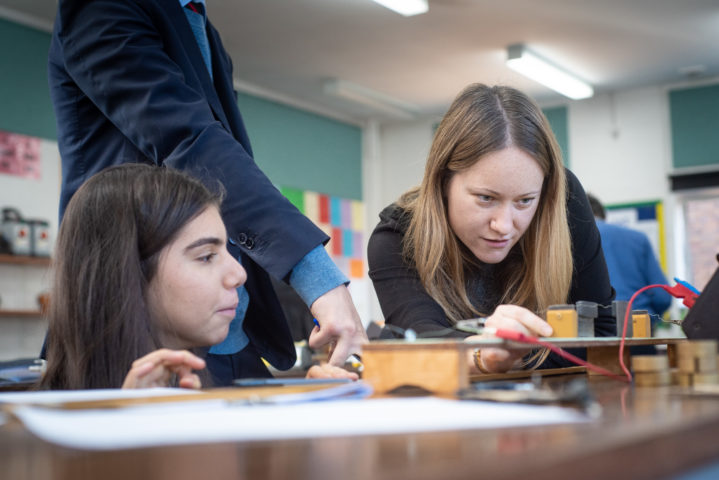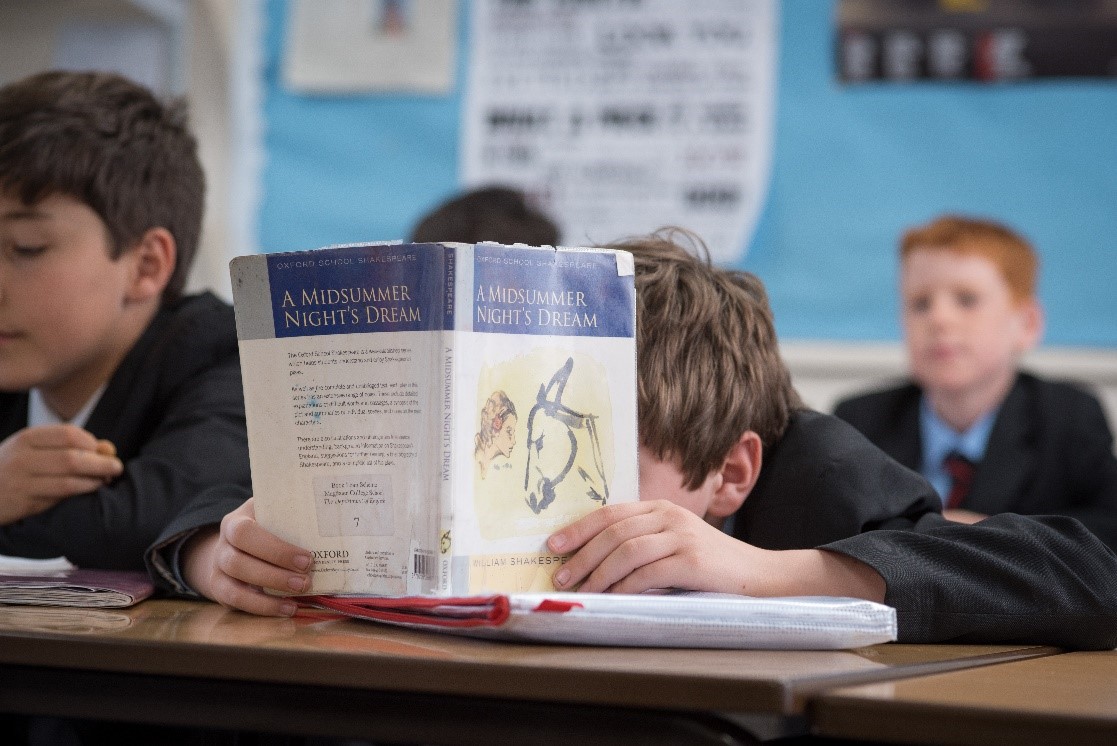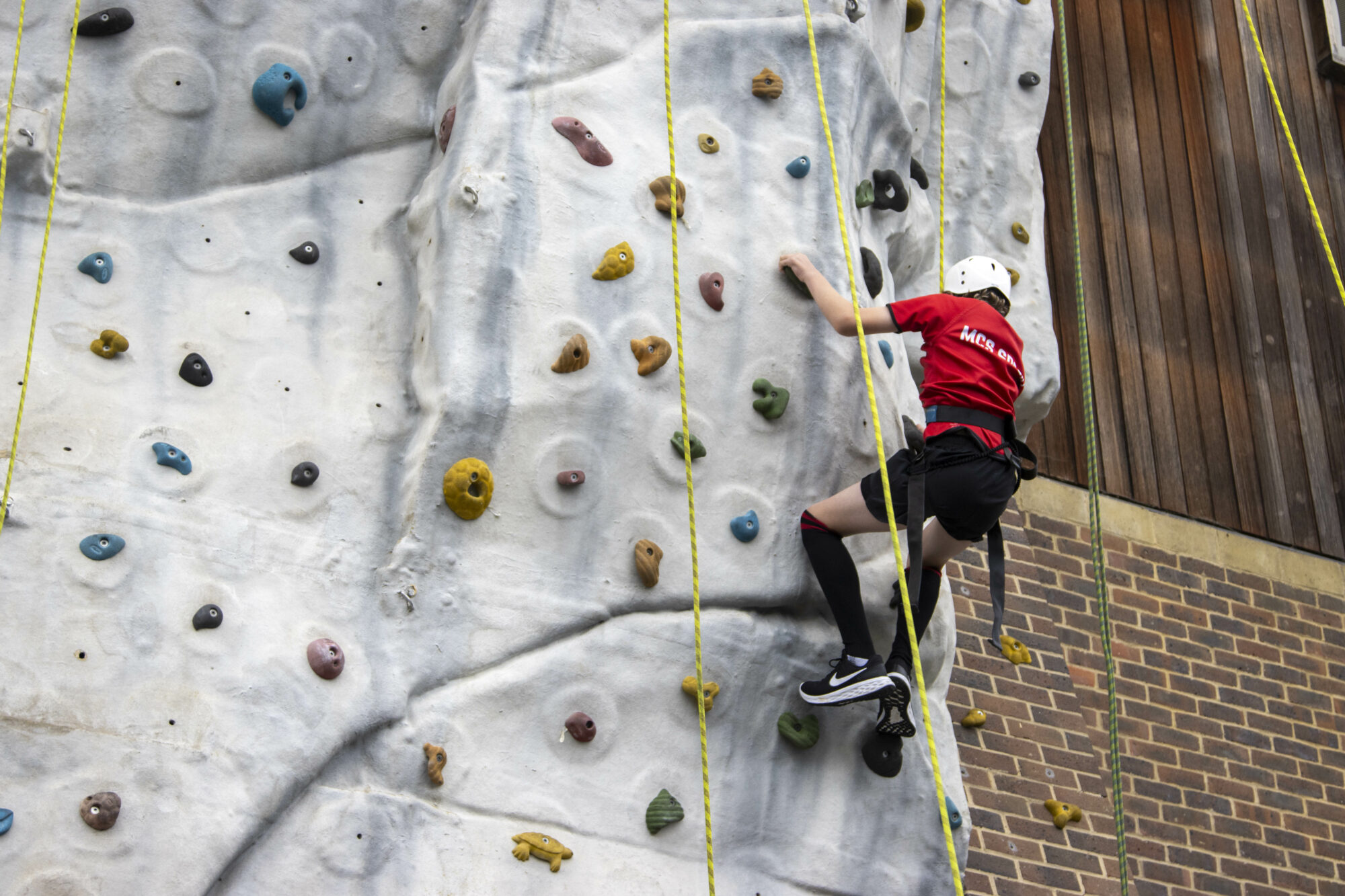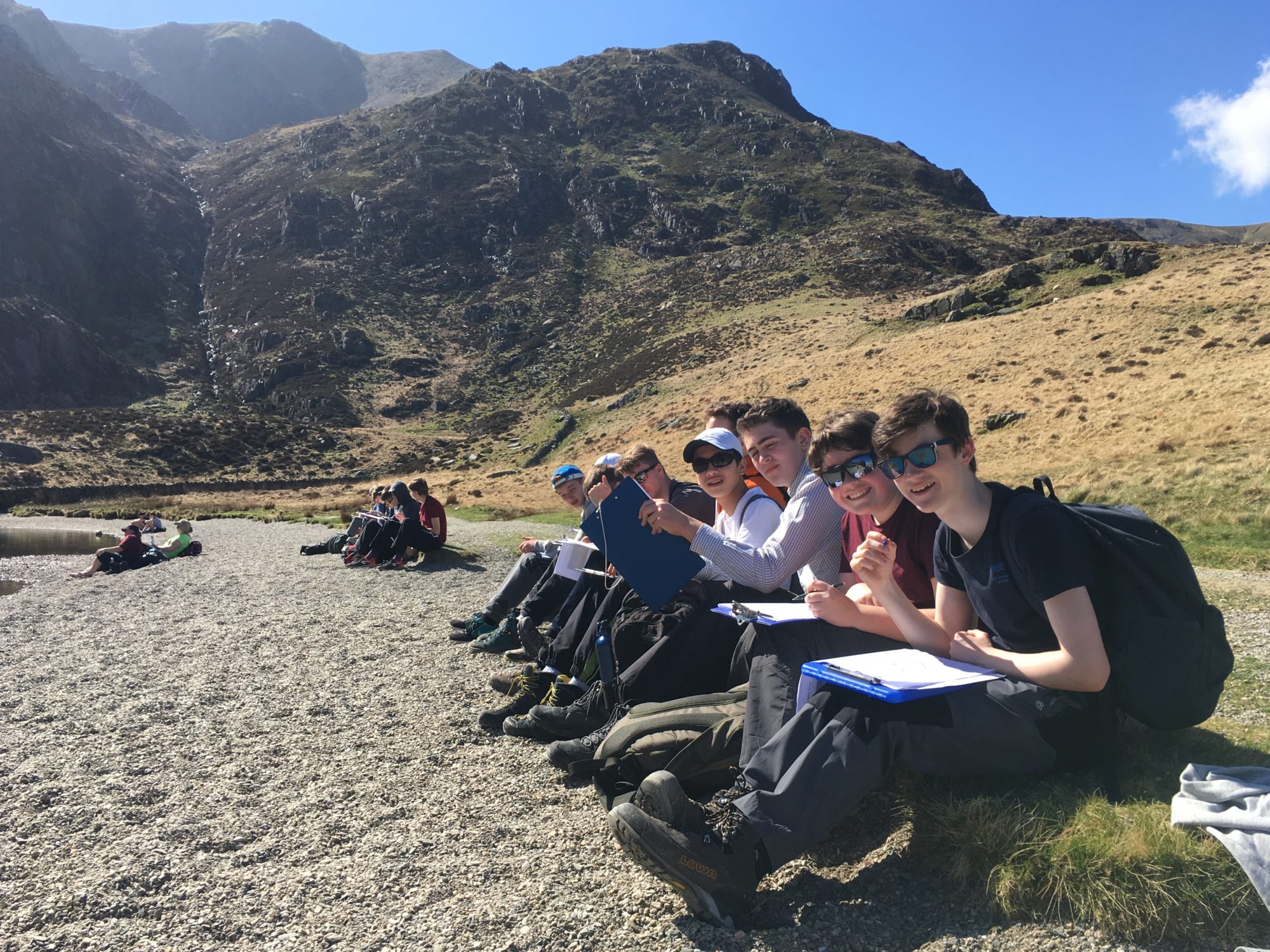Physics
There is not just one ‘type’ of Physicist, or one kind of person who does Physics. Physics appeals to those who love Maths and those who love practical work. Physics is about the big picture and the minute details. Physics is creative, joyful, maddening and fulfilling in equal measure, like any truly meaningful human undertaking.
Physics lessons at Magdalen College School are characterised by a passion for the subject shared by teachers and pupils alike and a depth of knowledge and experience among the staff that means classes of all age groups regularly go beyond the topics required for any particular exam. Of course, teachers do not know everything, and there is a common joy in finding out new things, combined with a fair amount of good humour.

“The supreme task of the physicist is the discovery of the most general elementary laws from which the world-picture can be deduced logically”
Albert Einstein
Physics aims to maintain and stimulate student curiosity, interest and enjoyment in science. Students become familiar with a canon of scientific knowledge, principles and vocabulary, enabling them to see science in the context of a wider body of knowledge and skills. Working independently and as part of a team, pupils enjoy varied lesson and resources that allow them to have equal access to science and to experience success, challenges and enjoyment in their science work. Over their time in Physics lessons, pupils develop an awareness of the implications of science (past and present) for the individual, the community and the environment. Students are able to develop informed opinions and engage in debate.
Lower School
In the Second and Third Form (Years 7 and 8), the Department has devised its own introductory course consistent with Common Entrance and Key Stage 3 requirements. At the same time, we take advantage of our freedom as an independent school to explore a curriculum that enriches pupils’ knowledge by going beyond the confines of these frameworks, while also developing key skills for later study in science. The pupils are taught the three sciences separately by subject specialists.
Middle School
Following the Edexcel 9-1 IGCSE Physics specification, Middle School students (Years 9-11) gain a grounding in the fundamental areas of mechanics, electricity, electromagnetism, pressure and gases (to name but a few), topics which are essential to the further study of Physics. Taking an ever more mathematical approach to problem solving, pupils become increasingly able to approach questions from a Physics perspective. Experimental work gives pupils the chance to verify that the material introduced is real – physics ideas have physical, measurable significance. Alongside this work, we are able to see how Physics impacts our society and world in engineering, energy generation and electricity in the home.
Sixth Form
Sixth Form (Years 12-13) Physics bridges the gap to university study. Following the AQA Physics A Level specification, pupils explore in more detail topics encountered at IGCSE and are introduced to totally new ideas (for example, the study of physical fields), crucial to further study. Again, practical work is essential. Pupils develop the skills to take precise measurements using advanced equipment and record and present data according to accepted scientific standards. This requires patience and discipline, excellent skills to learn alongside mathematical problem solving. We follow the Engineering Physics optional module, which introduces key concepts in thermodynamics (alongside rotational motion and a detailed look at how engines work), useful for would-be physicists and engineers alike
The study of Maths A Level alongside Physics is required (at least in Year 12). Physics is not just maths, but as all pupils have a grounding in mathematics (which is the preferred language for the expression of physical ideas), we take a technical approach that prepares pupils well for academic Physics at the best universities.
Refer to the Sixth Form Curriculum guide for a more detailed breakdown of the A-Level Physics programme.
Further Inspiration
If you are thinking about studying Physics in the Sixth Form at MCS, you might want to start reading around the subject before you join. Our Study Preparation guides are a useful tool, detailing further reading around key topics.
Exta-curricular
The Department’s teaching activities are supplemented by educational visits, internal lectures from outside speakers and participation in the Physics Olympiad and similar competitions. Physics societies and trips provide extra opportunities for the enrichment of value for all students.
Clubs and Activities
- The A2 Challenge and Physics Olympiad extension exams provide stretch and challenge material for the U6th. Extra classes and support are provided in the run-up.
- Extra sessions aimed at higher level physics are run for students applying for physical science courses at Oxford and Cambridge.
- Students in the L6th can attempt the L6th Physics Challenge exam (and the most highly able attempt the U6th challenges early).
- Students in U4th and 5th forms take part in the GCSE Challenge exam and are provided support in doing so.
- Physics and Engineering Journal Club gives students a chance to choose topics of their own interest, present new ideas to each other and discuss physics well beyond the exam specification. Visiting speakers from local universities and industry give talks on topics of interest to a wide variety of age groups.
- Engineering Club runs in conjunction with DT, where students learn fundamental skills in engineering then apply these to a design and build their own projects as part of a competition over the year.
“Study hard what interests you the most in the most undisciplined, irreverent and original manner possible”
Richard Feynmann
Trips
- U6th trip to CERN in Geneva ties in to L6th A-Level specification and provides ample opportunity for enrichment.
- KS3 Physics competition at St Edward’s School
- Isaac Physics problem solving days
- Other trips to local laboratories or research facilities are run that vary on a yearly basis
- GCSE Science live trip in conjunction with Biology and Chemistry to hear from distinguished speakers from a range of scientific disciplines
Where Physics could take you
A good number of pupils continue to study Physics, Physical Natural Sciences and Engineering at a range of top universities in the UK. Students who go on to other subjects after school find the rigorous, logical problem solving skills developed in Physics A Level help them in whatever they do next.
2019 University subjects
Physics was a popular A-level choice in 2019, leavers took up university places in a range of related subjects.
 MCS ranks among the top independent secondary schools, and in 2024 was awarded Independent School of the Year for our contribution to social mobility.
MCS ranks among the top independent secondary schools, and in 2024 was awarded Independent School of the Year for our contribution to social mobility.

 28 of our pupils achieved 10 or more 8 or 9 grades in 2024.
28 of our pupils achieved 10 or more 8 or 9 grades in 2024.
 In 2023-24, MCS received over £448,000 in donated funds.
In 2023-24, MCS received over £448,000 in donated funds.







